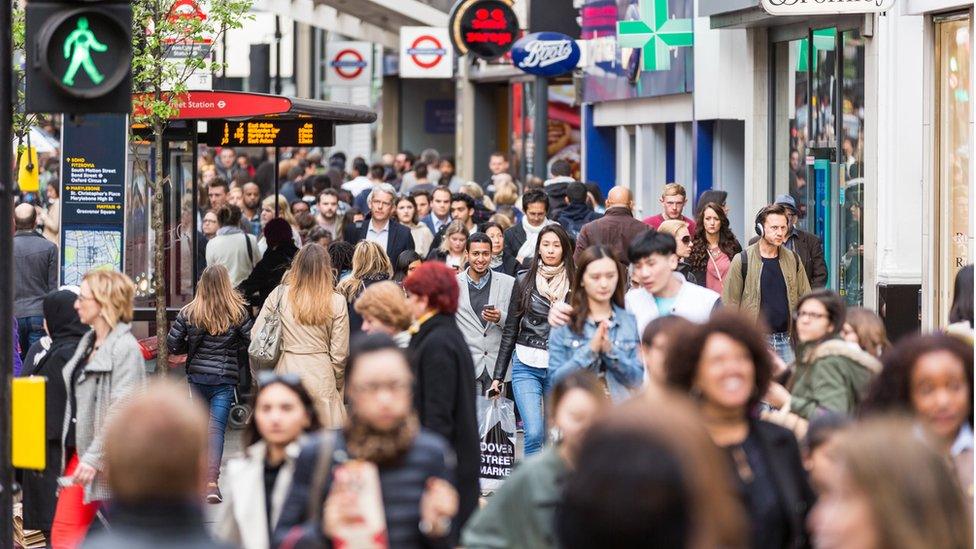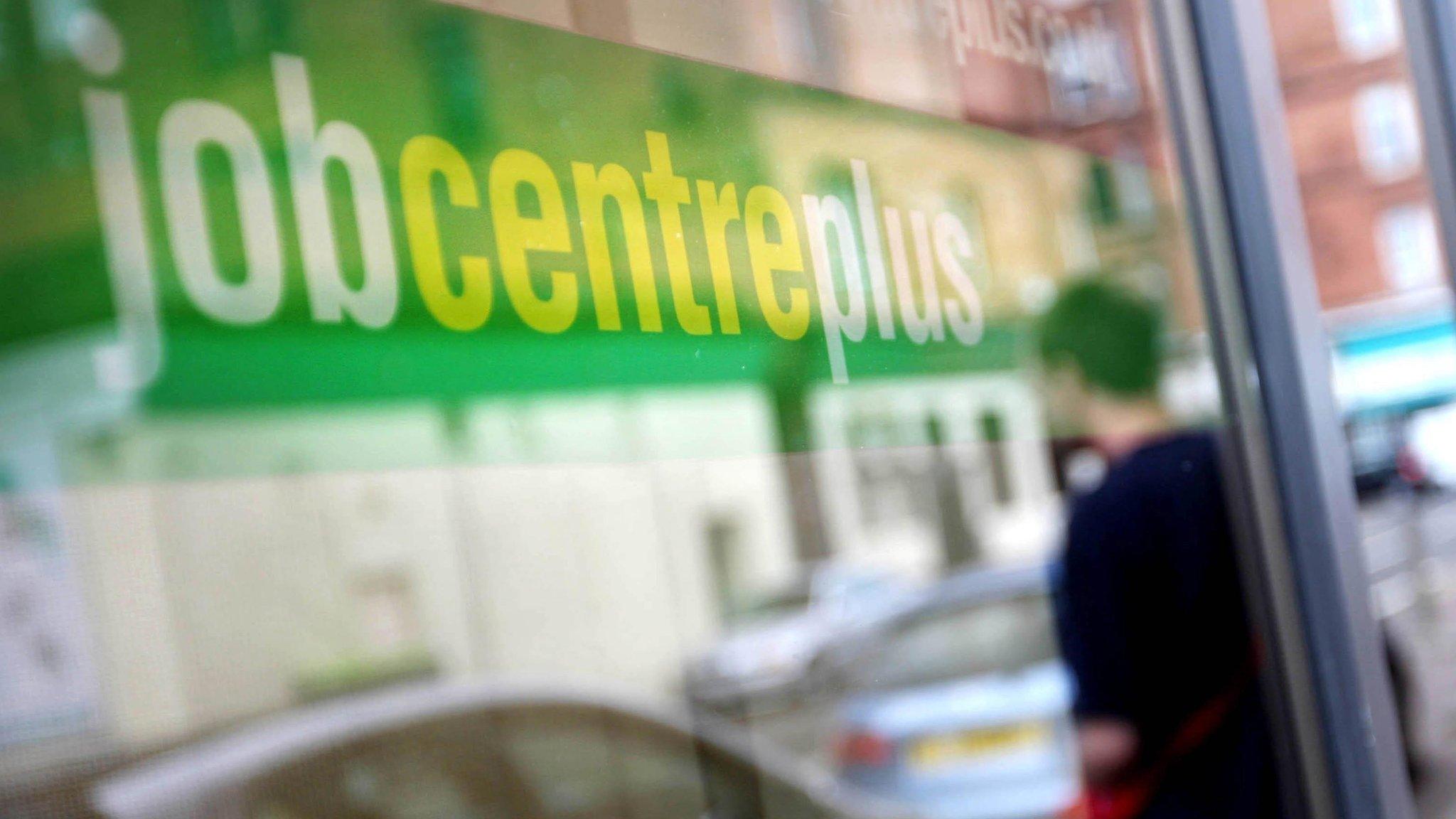ONS: Household income falling at fastest rate since 2011
- Published

Real household disposable incomes in the UK are falling at their steepest rate since 2011, the Office for National Statistics (ONS) has said.
The amount that families have to spend - after tax and benefits are taken into account - fell by 2% in the first quarter of 2017, compared to 2016.
The ONS said, external that was the biggest decline for more than five years.
It added that the main reason for the fall was the rise in inflation, which hit 2.3% in the year to March.
The real household disposable income measure is adjusted for inflation, meaning that rises in the cost of living result in lower disposable income.
Over the same period, wages rose by just 2.1%.
The fall in the value of sterling since the Brexit vote has increased the cost of imports, including food, so boosting inflation.
Real household income per head has now fallen for three months in a row - the first time that has happened since 2013.
The TUC said the government needed to create better-paid jobs.
"It's official. Britons are getting poorer," said Frances O'Grady, the TUC's general secretary.
"Having just lived through the longest wage squeeze since Victorian times, their living standards are in freefall again. The government cannot sit on its hands and watch this crisis unfold."
However, a different measure of income, which reflects the wider strength of the economy, showed an improvement.
Net national income per head - the economy's earnings divided by the number of adults - rose by 4.3% in the year to the end of March. This was because of an increase in earnings from abroad, also driven by a fall in the value of sterling.
- Published17 May 2017
